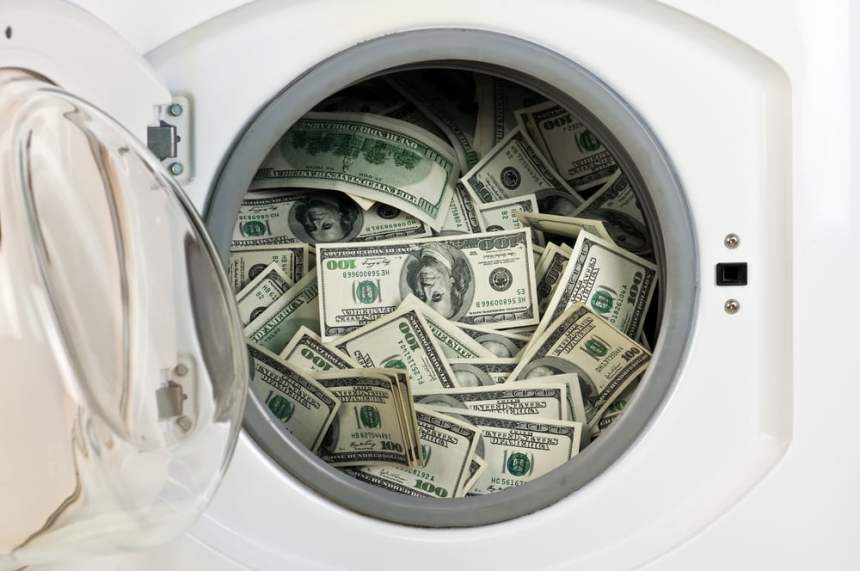For all the damning rhetoric about Bitcoin and its use in enabling money laundering spewed from the Trump administration of late, you would think that those closest to the President have never dreamed of exploiting loopholes to avoid paying tax. However, shocker of all shockers, it turns out several key members of the US government were explicitly mentioned in the massive data leak known as the Paradise Papers in 2017.
The Paradise Papers are huge cache of 13.4 million documents connecting more than 120,000 individuals and companies to offshore investments in tax havens. One of those listed in the files is none other than US Treasury Secretary, Steven Mnuchin.
Mnuchin Sees No Issue with Tax Havens, Still Hates Bitcoin
Bitcoin finally seems to have grabbed the attention of the United States government. Since social media giant Facebook detailed its digital currency project Libra last month, both President Trump himself, as well as the US Treasury Secretary Steven Mnuchin, have expressed distaste about the potentially world-changing financial technology.
Donald Trump Not a Fan of Bitcoin And Crypto? Too Volatile, He Says@realDonaldTrump has openly commented on #Bitcoin and crypto assets. On Twitter no less. https://t.co/9tAlGizVBS
— NewsBTC (@newsbtc) July 12, 2019
The grounds upon which members of the Trump administration have attacked Bitcoin are all too familiar. They believe the digital currency to have no other purpose than as a tool to enable tax avoidance. However, the irony is that several key members of Trump’s government were named as having invested heavily in companies based in offshore tax havens in the Paradise Papers released in November 2017.
Mentioned explicitly in the documents widely circulated by the International Consortium of Investigative Journalists are former chief economic adviser to Trump, Gary Cohn; former Secretary of State, Rex Tillerson; and other members of government closest to the president.
Given his recent musings on Bitcoin and cryptocurrency, the most interesting of the names with regards the data leak is Steven Mnuchin, the current Treasury Secretary of the United States. Mnuchin recently stated:
“Cryptocurrencies such as Bitcoin have been exploited to support billions of dollars of illicit activity like cybercrime, tax evasion, extortion, ransomware, illicit drugs, and human trafficking.”
It is not clear where Mnuchin gets his figures from to support this statement, however, particularly when research claims that less than one percent of all Bitcoin use is believed to be criminal. He also fails to observe that the US dollar has been used for all of the above for much longer than Bitcoin, particularly tax avoidance.
Whilst not technically illegal, tax havens around the world allow the planet’s wealthiest to take millions of dollars out of the economies they are supposed to pay taxes in and instead hoard them away in shady investment funds in nations with favourable tax legislation. It is not difficult to see the hypocrisy in the stance of Mnuchin and Trump.
Both take issue with a piece of technology that generally enables greater global freedom but has found limited use as a tool to hide money from authorities. Conversely, they see nothing wrong with depriving national coffers of huge sums for their own financial gain through their use of such offshore investment vehicles.
Even prior to the leak of the Paradise Papers, members of the US government expressed doubts about Mnuchin’s suitability for the role of Treasury Secretary. According to a New York Times report from before Trump’s inauguration in 2017, it was revealed that the now-Treasury Secretary had not only failed to disclose almost $100 million in assets but had also neglected to state that he had once served as a director of a Cayman Islands-based investment fund.
Senator Ron Wyden, speaking at a Senate Finance Committee at the time, raised concerns over Mnuchin’s past:
“The Treasury Secretary ought to be somebody who works on behalf of all Americans, including those who are still waiting for the economic recovery to show up in their communities. When I look at Mr. Mnuchin’s background, it’s a stretch to find evidence he’d be that kind of Treasury secretary.”
Another of those doubting his suitability, Senator Debbie Stabenow, directly asked if Mnuchin was using his connections in the known tax haven to avoid paying rates to the government. Without addressing the question, he responded that was working for the fund’s clients and was doing so in accordance with the law.
Since the US Treasury Secretary evidently has no problem getting creative to avoid paying his own taxes but still expresses such distaste for Bitcoin based on its own potential to enable tax avoidance, it seems fair to conclude that this is not the real concern the powers that be have with the potentially-levelling financial technology.
Perhaps it’s the fact that Mnuchin, Trump, or anyone else for that matter can never control Bitcoin and therein lies its ever-growing appeal. For those used to pulling the strings in their favour, this should be a worrying prospect indeed.
Related Reading: CNBC Analyst Calls Secretary Mnuchin Out on Bitcoin Criticism
Featured Image from Shutterstock.
